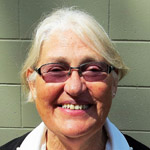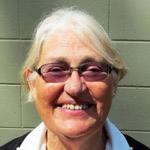
Good neighbours can be much more than good friends, according to a study carried out in America. The article goes on to describe a reduced risk of heart attack among people who lived in friendly neighbourhoods.
Over 5000 people, with an average age of 70, were monitored over four years. These people claimed that they were living in friendly neighbourhoods which factored almost as strongly as family in terms of social support. After various analyses and adjustments, the researchers claimed a 22% reduced risk of heart attack among these people.
From a science perspective I would probably like to see that a rigorous process had taken place to determine this, but it nevertheless is an interesting correlation.
In God’s image
While the Trinity – Father, Son and Holy Spirit – is actually a human construct to try to help us understand God better, it cannot be denied that God is relationship. The concept of the Trinity has come from countless observations of their relationship in Scripture.
In the beginning, God the Creator was with the Holy Spirit as they caused the universe to come into being.
When God made man and woman, He said “Let us make man in our image, in our likeness…”. (emphasis mine)
In the New Testament, Jesus claims such a close relationship with His Father, that when we see Jesus, we also see the Father. In the same way, while He was leaving His disciples, He was sending the Holy Spirit who only does what the Father does.
Is it any wonder then that if we are made in the image of God, the fulfillment of that image is to be in relationship? Relationship with family is crucial to our well-being, but relationship should also extend outside the family to all walks of life.
Extremes and crises
As I write this, there’s a TV news item about extreme cold weather being experienced in Chicago. People were being urged to check on their neighbours to make sure they were safe.
When we experienced the 2003 fire in Canberra, we pulled together to put out spot fires in lawns around our home and to make sure everyone was safe. Crises do bring us together and sometimes the inhibitions that are usually there are broken down in the interests of mutual safety.
Similarly, the current situations of fires in Tasmania and floods in Queensland (only in Australia!) have brought out the best in people helping each other through the tough times.
The trick is, once the crisis has passed, to continue and build on the friendships established. Sometimes it helps to have a garden: we periodically get more lemons than we can use and I love being able to spread them around the neighbourhood.
Neighbours can be there for immediate help – as Proverbs chapter 27 verse 10 says: Better a neighbour nearby than a brother far away.
But one of the saddest items of news also occurs too frequently: a body discovered in a house or a flat, which has been dead for several days or weeks before it was discovered. Did no one honestly notice that the person hadn’t been seen for a while?
Jesus’ take on neighbours
When the rich young man asks Jesus what to do in order to gain eternal life, Jesus says, in Matthew Chapter 19, verses 18 and 19, “‘Do not murder, do not commit adultery, do not steal, do not give false testimony, honour your father and mother,’ and ‘love your neighbour as yourself.’”
In Luke’s gospel, Jesus elaborated on these statements by telling the well-known parable of the Good Samaritan, in answer to the question “What do you mean by ‘my neighbour’?”
In the light of this example, can we as Christians, do any less?
Our neighbours, then, become anyone who is a human being. Whether we know them or not, whether we like them or not, whether they are close friends or total strangers, is irrelevant. We exercise the image of God by the way we relate to people around us, regardless of who they are.
Don’t be a stranger
We all have to overcome the fear of man. What will they think of me? I’ll embarrass myself if I talk to them. They’ll be suspicious of me. They’ll think I’m nuts. They might be scared of me.
Reach out anyway! Smile at people in the shops. Get to know the people on your train, in your units, in the library or wherever you are. Ask the Holy Spirit for a word of encouragement for someone. And at some point grab the opportunity to tell them about the One who loves them and gave His life for them!
You, and they, will be the healthier for it.
 Aira Chilcott is a retired secondary school teacher with lots of science and theology under her belt. Aira is a panellist for Young Writers and indulges in reading, bushwalking, volunteering at a nature reserve and learning to play clarinet. Aira is married to Bill and they have three adult sons.
Aira Chilcott is a retired secondary school teacher with lots of science and theology under her belt. Aira is a panellist for Young Writers and indulges in reading, bushwalking, volunteering at a nature reserve and learning to play clarinet. Aira is married to Bill and they have three adult sons.
Aira Chilcott's previous articles may be viewed at http://www.pressserviceinternational.org/aira-chilcott.html

Aira Chilcott is a retired secondary school teacher with lots of science andtheology under her belt. Aira is an editor for PSI and indulges inreading, bushwalking and volunteering at a nature reserve. Aira’s husband Bill passed away in 2022 and she is left with three wonderful adult sons and one grandson.
Aira Chilcott's previous articles may be viewed at http://www.pressserviceinternational.org/aira-chilcott.html